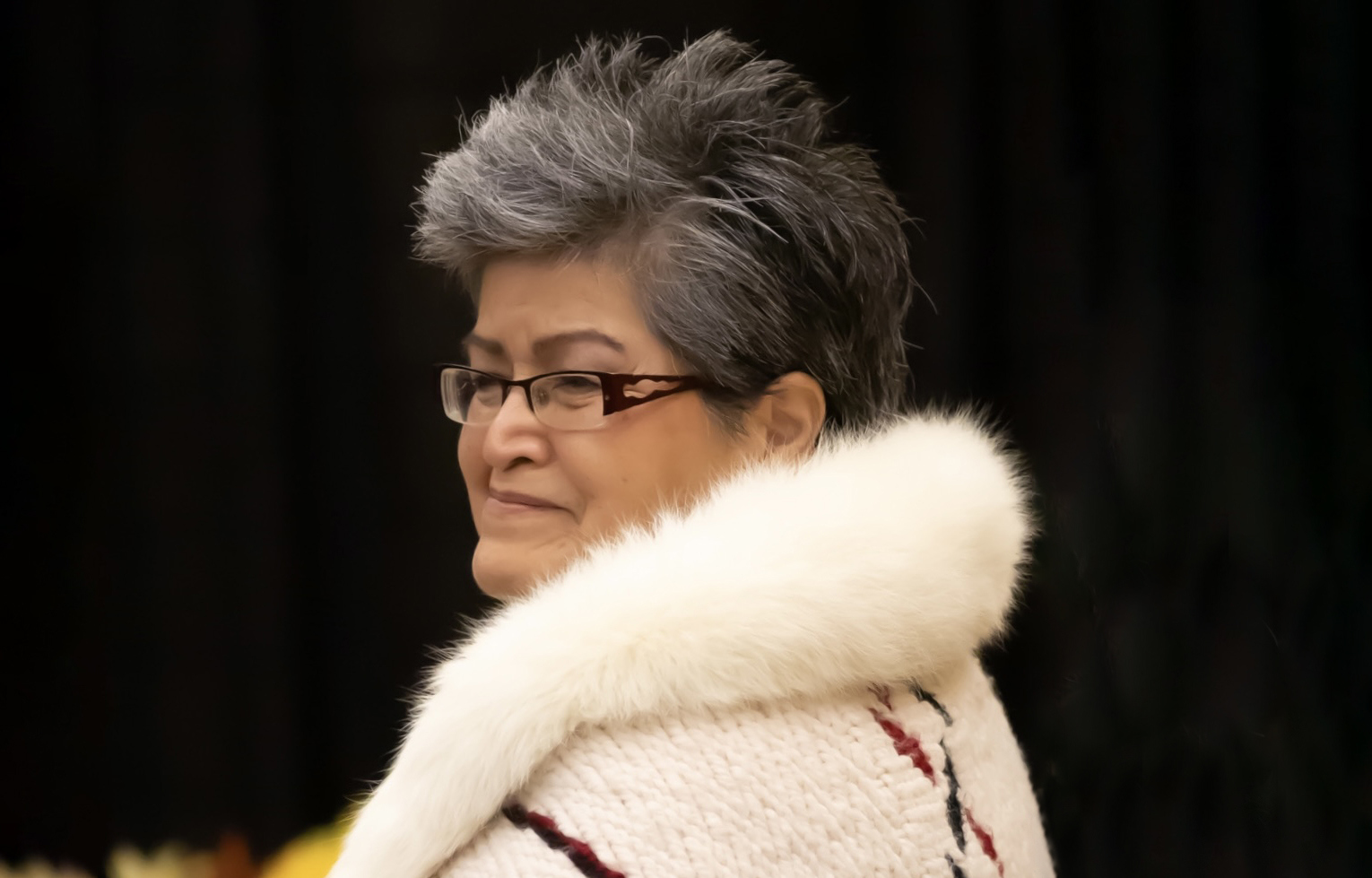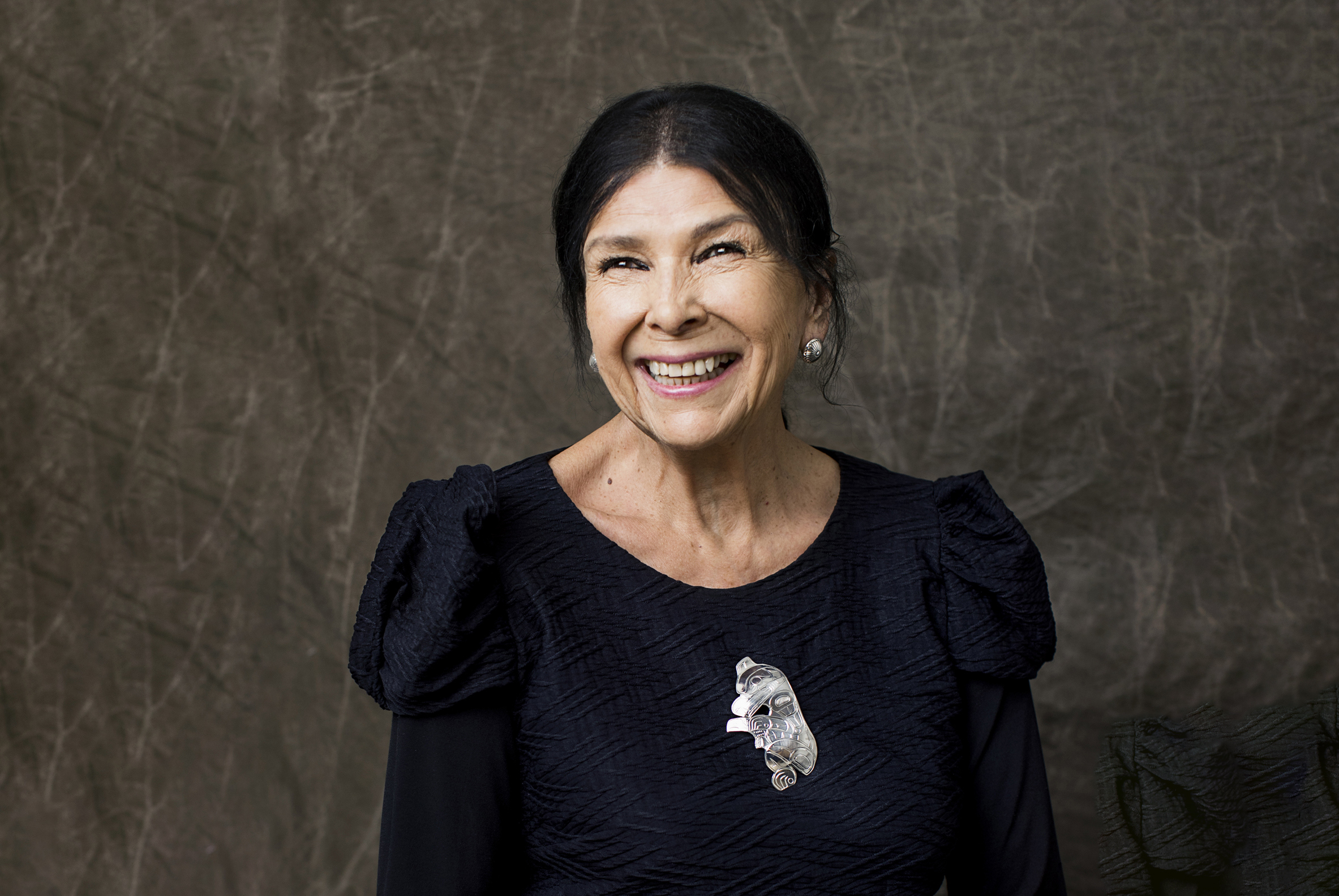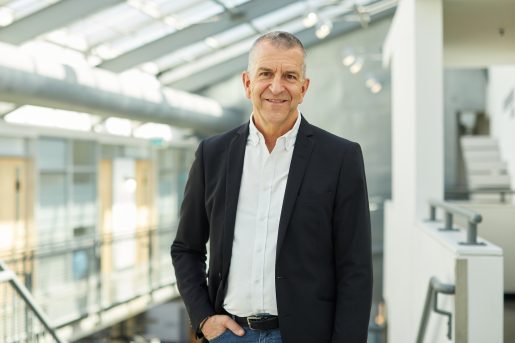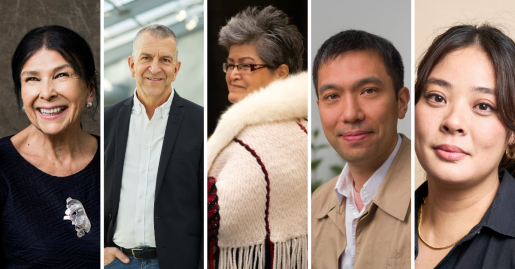Chepximiya Siyam’ Chief Janice George on the Life-Giving Power of Culture

Posted on | Updated
The celebrated master weaver, cultural leader and 2025 Honorary Degree recipient has dedicated her life to sharing Coast Salish weaving and culture with her community and the world.
If there is one thing Chepximiya Siyam’ Chief Janice George is sure of, it’s this: culture is the key.
The master weaver, award-winning cultural leader, author, teacher and 2025 recipient of an Honorary Degree from Emily Carr University of Art + Design (ECU) has devoted her life to this certainty.
A trained museum curator and educator as well as a hereditary Chief of the Squamish Nation, Janice has travelled widely to share Coast Salish weaving practices through workshops, exhibitions and other initiatives.
She co-organized the 1st Canada Northwest Coast Weavers Gathering with other Squamish Nation weavers. With her husband, fellow weaver and teacher Skwetsimeltxw Willard “Buddy” Joseph, she co-founded L’hen Awtxw Weaving House as a centre for education for traditional Coast Salish wool weaving teachings and practices. Along with Leslie Tepper, the pair co-authored the 2017 book, Salish Blankets: Robes of Protection and Transformation, Symbols of Wealth.
But when she first travelled to Washington state in 2003 to study weaving under Susan Pavel and Subiyay-t Bruce Miller of Skokomish, she only knew of one other person who was weaving in her Nation, and he was not teaching. She worried the practice was a dying art and feared what else might be lost should weaving disappear.
“The way my husband talks about it is our elders, our ancestors, they worked really hard … and the one thing that helped them live through everything — the disease and residential school and everything else that our ancestors went through, the change to the country and everything — is that they held on to the teachings and the culture,” she says. “I believe that’s what brought them through.”
When she brought what she’d learned back home, “I swear, it was just like wildfire,” she says. “Now we have thousands of students.”
Janice suggests this is because weaving is far more than a technical act. It is a place where history, philosophy, tradition and all manner of cultural knowledge are held. This cultural knowledge is, in turn, a foundation for self-care and for caring for one’s community.
“I feel like that’s what weaving does,” she says. “Having those teachings that go with it helps you be the person you are [and] who you are meant to be and grow … but also keep your feet firmly on the ground. Helps you be humble, giving and caring for the future generations.”
For Janice, this is not just a metaphysical perspective. It’s a bone-deep knowledge won through personal loss, fellowship and hard work.
“One of the things I understand and I know — and I say a lot — is that the culture saved my life when we lost our family,” says Janice, who lost her parents, a sister and a child in an auto accident in 1981. “My grandmother gathered me and my sisters, she brought us in her room, and she talked to us about what we’re going to do to make it through this … And I credit my grandmother for really holding us together. But what she used was the culture and the traditions of taking care of yourself.”
Janice integrates the cultural teachings learned from her grandmother, Kwitelut-t Lena Jacobs, into her own practice, which she now passes on to her students.
“I experienced how [these teachings] can save lives,” she says. “I feel like it’s important to share it with everyone because we can all use that kind of help everywhere. Not just as Squamish people. We all live in this place.”
Hear more from Janice in our feature video interview on ECU’s YouTube channel. Find interviews with the rest of our 2025 honorary degree recipients alongside all the videos from this year’s grad events on our ECU Graduation playlist.



